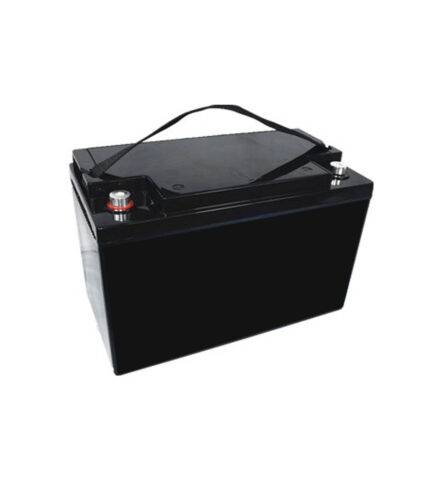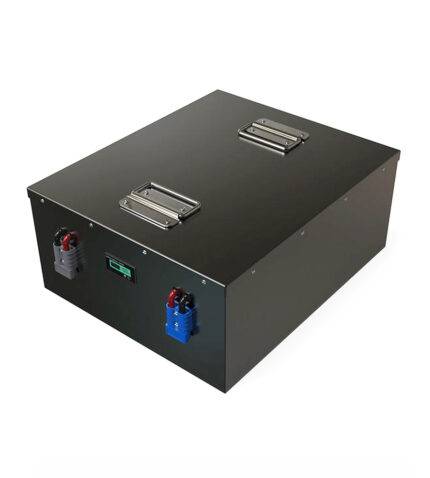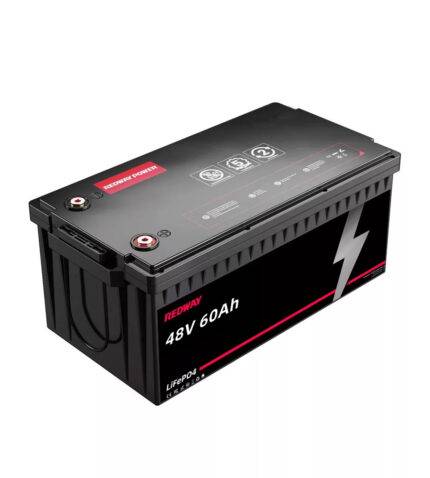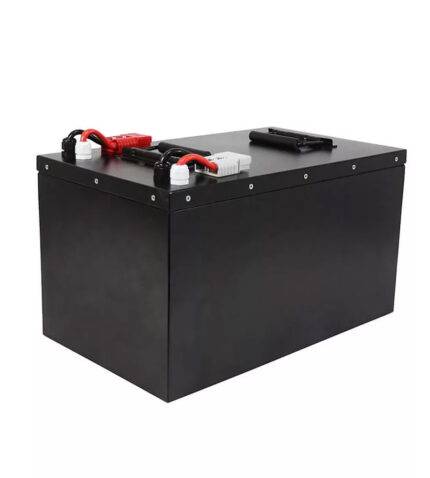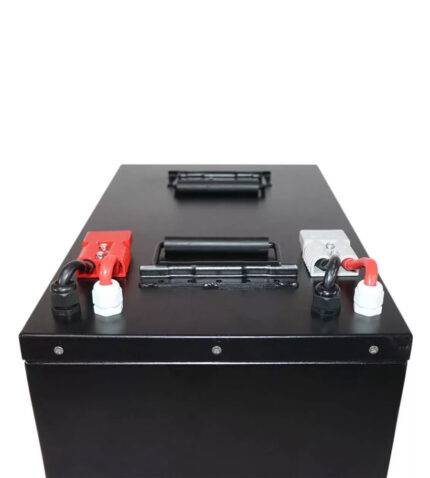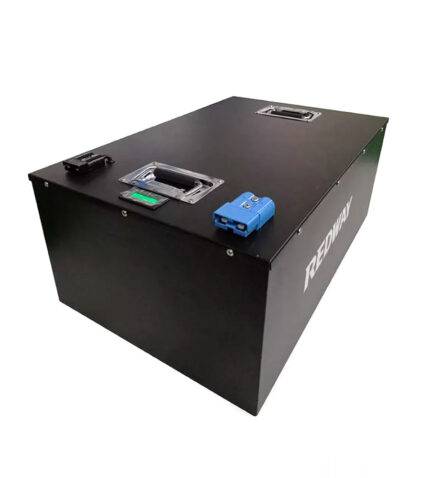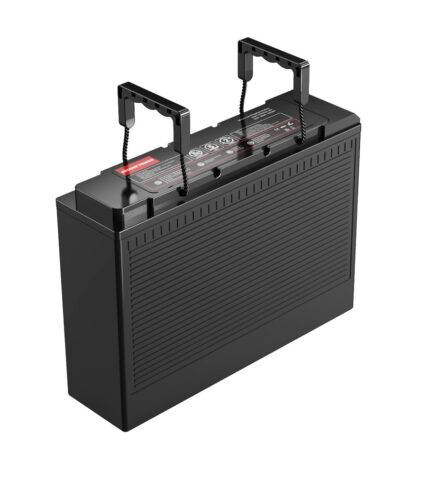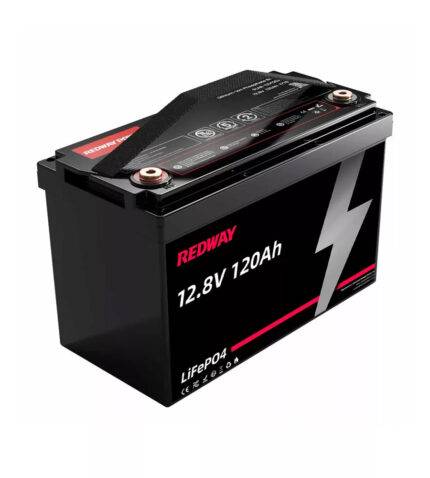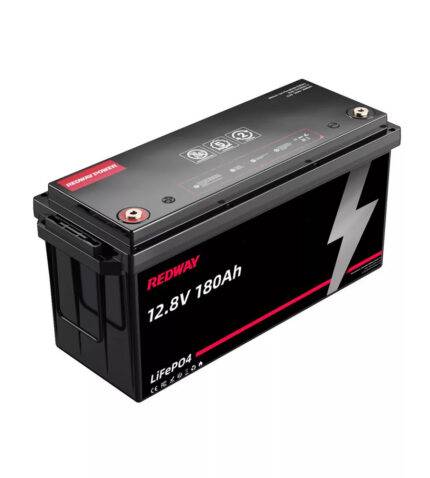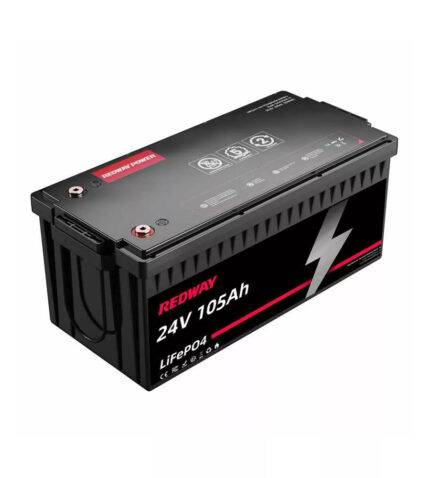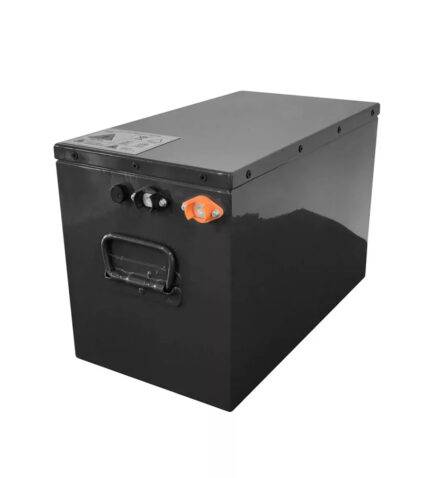- Forklift Lithium Battery
-
48V
- 48V 210Ah
- 48V 300Ah
- 48V 420Ah (949 x 349 x 569 mm)
- 48V 420Ah (950 x 421 x 450 mm)
- 48V 456Ah
- 48V 460Ah (830 x 630 x 590 mm)
- 48V 460Ah (950 x 421 x 450 mm)
- 48V 460Ah (800 x 630 x 600 mm)
- 48V 460Ah (820 x 660 x 470 mm)
- 48V 500Ah
- 48V 560Ah (810 x 630 x 600 mm)
- 48V 560Ah (950 x 592 x 450 mm)
- 48V 600Ah
- 48V 630Ah
-
48V
- Lithium Golf Cart Battery
- 12V Lithium Battery
12V 150Ah Lithium RV Battery
Bluetooth App | BCI Group 31
LiFePO4 Lithium
Discharge Temperature -20°C ~ 65°C
Fast Charger 14.6V 50A
Solar MPPT Charging - 24V Lithium Battery
- 36V Lithium Battery
- 48V Lithium Battery
-
48V LiFePO4 Battery
- 48V 50Ah
- 48V 50Ah (for Golf Carts)
- 48V 60Ah (8D)
- 48V 100Ah (8D)
- 48V 100Ah
- 48V 100Ah (Discharge 100A for Golf Carts)
- 48V 100Ah (Discharge 150A for Golf Carts)
- 48V 100Ah (Discharge 200A for Golf Carts)
- 48V 150Ah (for Golf Carts)
- 48V 160Ah (Discharge 100A for Golf Carts)
- 48V 160Ah (Discharge 160A for Golf Carts)
-
48V LiFePO4 Battery
- 60V Lithium Battery
-
60V LiFePO4 Battery
- 60V 20Ah
- 60V 30Ah
- 60V 50Ah
- 60V 50Ah (Small Size / Side Terminal)
- 60V 100Ah (for Electric Motocycle, Electric Scooter, LSV, AGV)
- 60V 100Ah (for Forklift, AGV, Electric Scooter, Sweeper)
- 60V 150Ah (E-Motocycle / E-Scooter / E-Tricycle / Tour LSV)
- 60V 200Ah (for Forklift, AGV, Electric Scooter, Sweeper)
-
60V LiFePO4 Battery
- 72V~96V Lithium Battery
- Rack-mounted Lithium Battery
- E-Bike Battery
- All-in-One Home-ESS
- Wall-mount Battery ESS
-
Home-ESS Lithium Battery PowerWall
- 24V 100Ah 2.4kWh PW24100-S PowerWall
- 48V 50Ah 2.4kWh PW4850-S PowerWall
- 48V 50Ah 2.56kWh PW5150-S PowerWall
- 48V 100Ah 5.12kWh PW51100-F PowerWall (IP65)
- 48V 100Ah 5.12kWh PW51100-S PowerWall
- 48V 100Ah 5.12kWh PW51100-H PowerWall
- 48V 200Ah 10kWh PW51200-H PowerWall
- 48V 300Ah 15kWh PW51300-H PowerWall
PowerWall 51.2V 100Ah LiFePO4 Lithium Battery
Highly popular in Asia and Eastern Europe.
CE Certification | Home-ESS -
Home-ESS Lithium Battery PowerWall
- Portable Power Stations
60V 30Ah Lithium Battery
• Cell: LiFePO4
• MOQ: 10
• Delivery: 20 Days
• Customizable / OEM / ODM: Yes
• Factory: Redway, Dongguan, Guangdong, China
• Delivery Terms: FOB, EXW, CIF
• Payment: T/T, L/C, PayPal
• Sea / Air / Land Shipment: 10FT, 20FT, 40FT, 60FT
Description
This battery is the 60V 30Ah Lithium LiFePO4 Battery from Redway Power, a leading manufacturer based in China that specializes in high-quality lithium-ion batteries. Built with advanced LiFePO4 technology, this battery provides robust energy solutions for various applications, ensuring reliability and optimal performance.
Key Features
- High Energy Capacity: With a nominal capacity of 30Ah and an energy output of 1,836Wh, this battery is designed to power demanding devices effectively.
- Durable and Weatherproof: Featuring an IP66 rating, this battery is protected against dust and water, making it suitable for outdoor and industrial environments.
- Extended Cycle Life: Capable of over 4,000 cycles at 80% depth of discharge (DOD), this battery minimizes the need for frequent replacements, delivering excellent long-term value.
- Smart Battery Management System (BMS): Equipped with an intelligent BMS that safeguards against overcharging, overheating, and short circuits, ensuring safe operation.
- Compact Design: Weighing only 15 kg, this lightweight battery is easy to install and integrate into various systems.
Applications
The 60V 30Ah Lithium LiFePO4 Battery is versatile and ideal for a variety of applications, including:
- Electric scooters
- Golf carts
- Sightseeing vehicles
- Automated Guided Vehicles (AGVs)
- Electric rickshaws and e-trishaws
- Floor cleaning machines
- Renewable energy storage systems
- Marine applications such as yachts and fishing boats
With a maximum charging voltage of 69.3V and a discharge cut-off voltage of 47.5V, this battery is optimized for various operational needs. It operates effectively across a temperature range from -20°C to 65°C, making it adaptable to different environments.The lightweight design allows for easy installation while ensuring that your equipment operates efficiently throughout the day. Additionally, it supports fast charging capabilities, enabling quicker turnaround times between uses.
As a trusted factory in China, Redway Power is dedicated to delivering high-quality lithium-ion batteries that enhance productivity and sustainability in your operations. The 60V 30Ah Lithium LiFePO4 Battery not only reduces downtime but also contributes to lower operational costs due to its efficiency and long lifespan.Investing in this battery means choosing a reliable power solution that meets the demands of modern electric vehicles and industrial applications while supporting your business’s growth and sustainability goals. Choose Redway Power for your lithium battery needs and experience unparalleled performance and service.
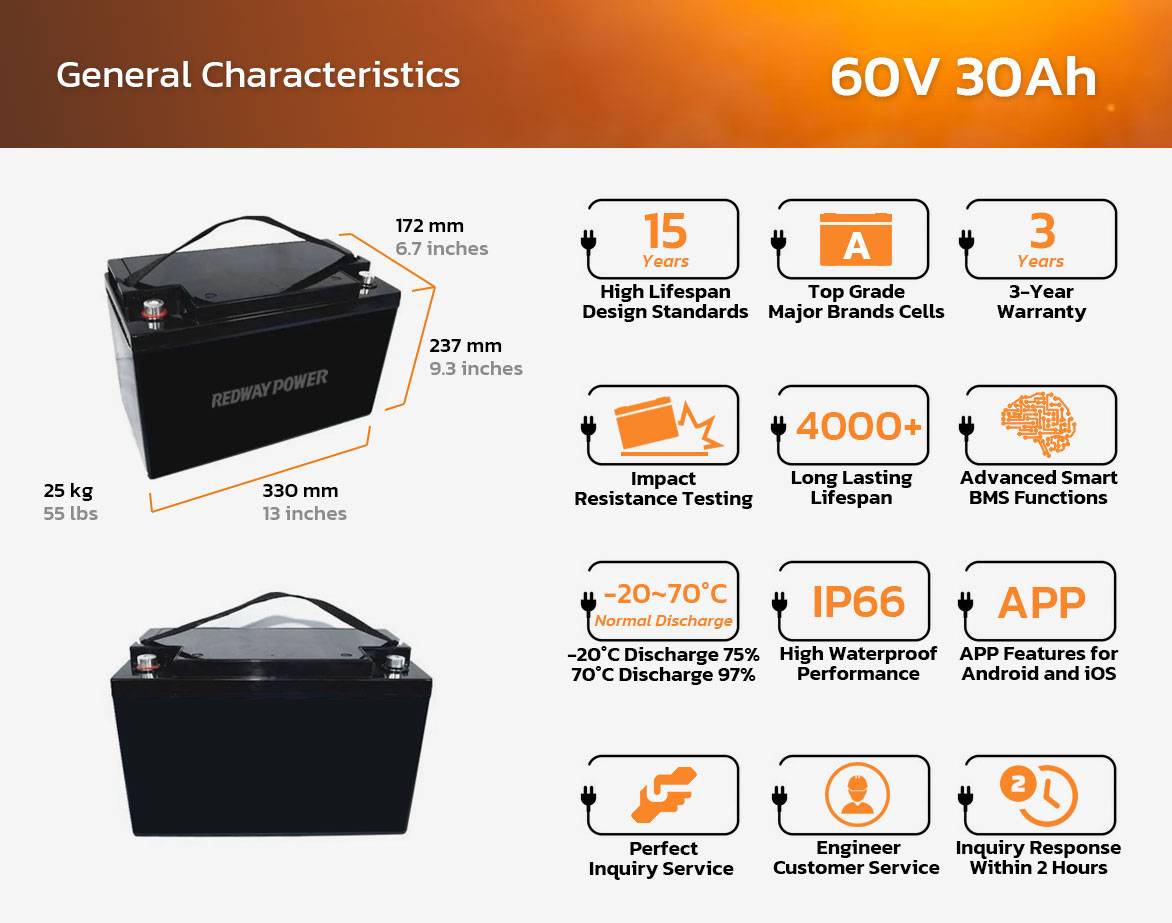
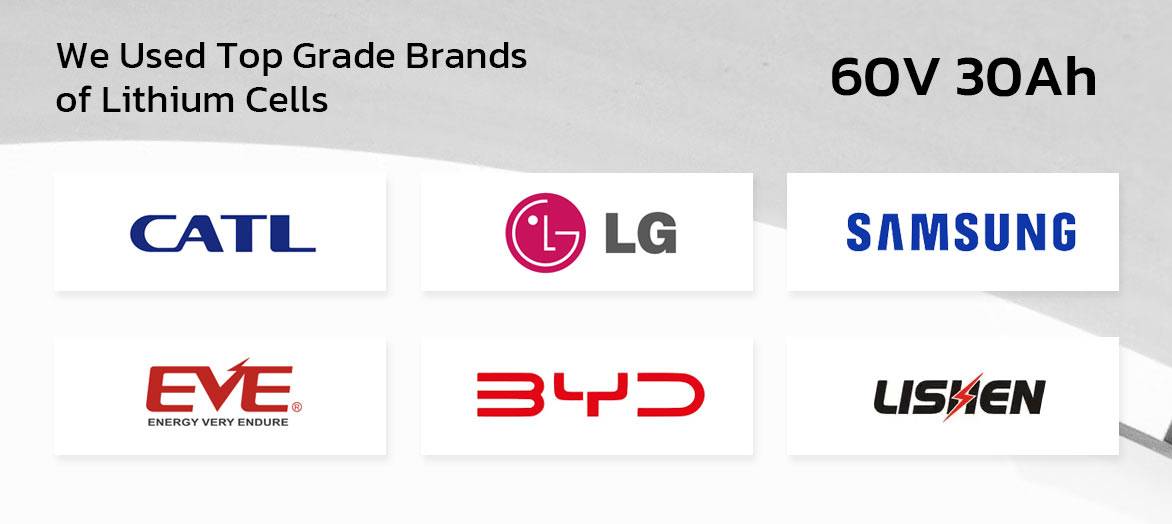
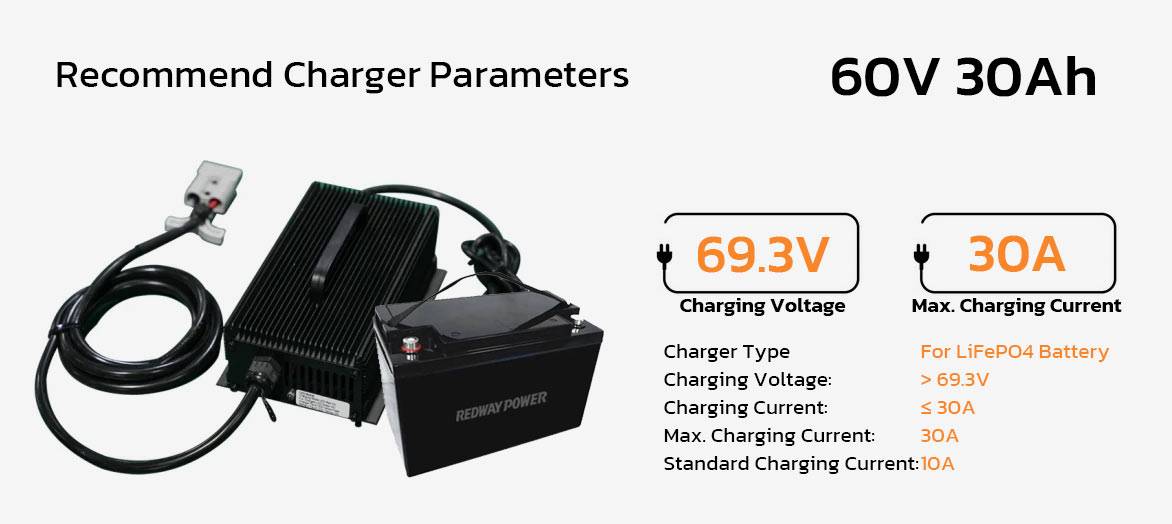
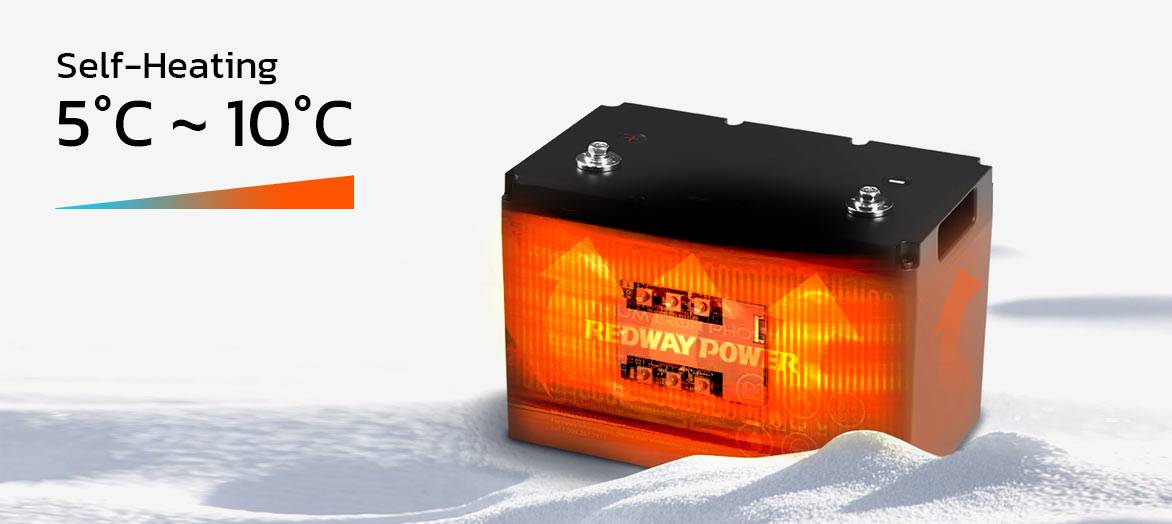
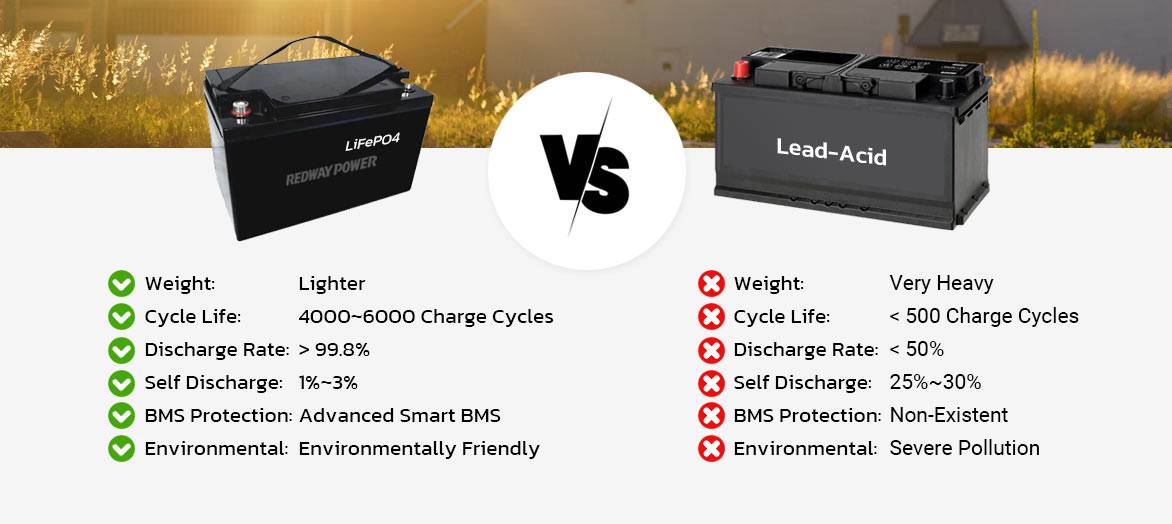
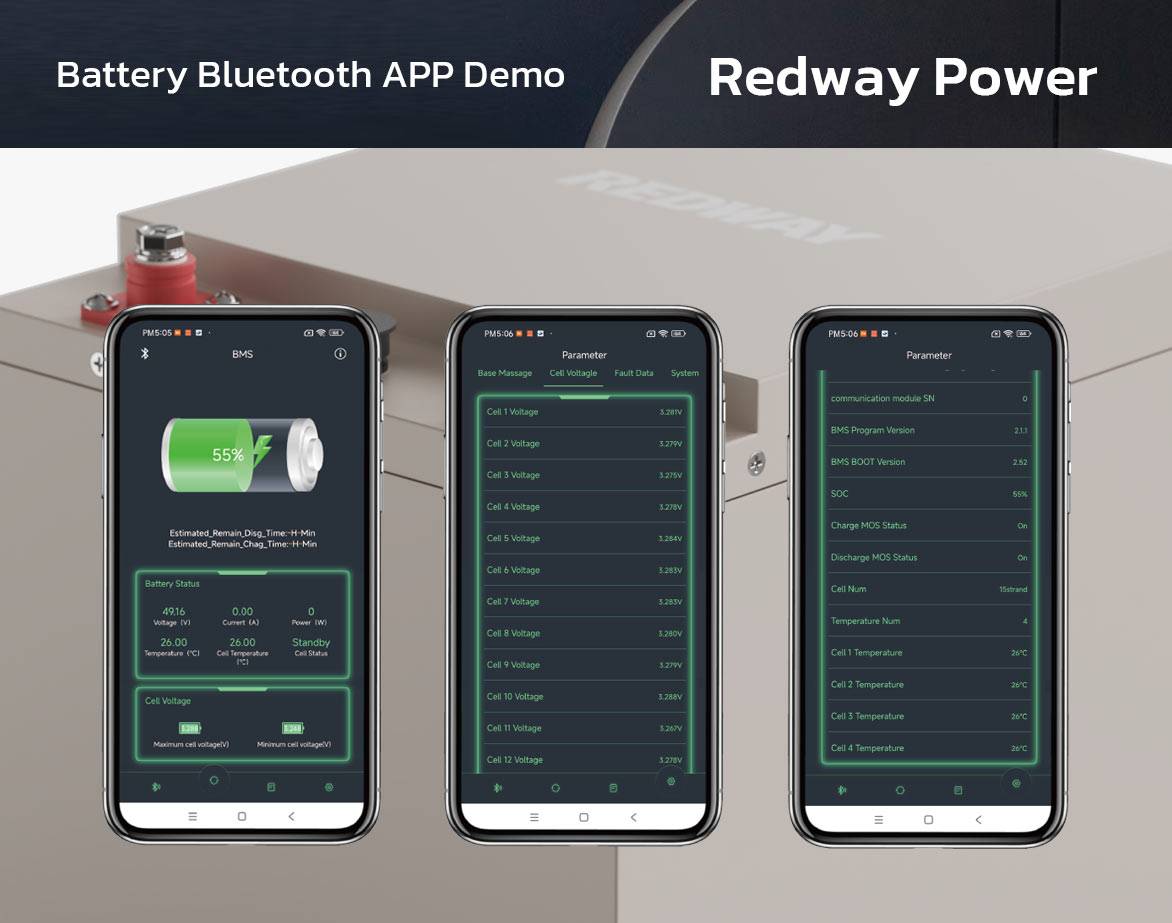
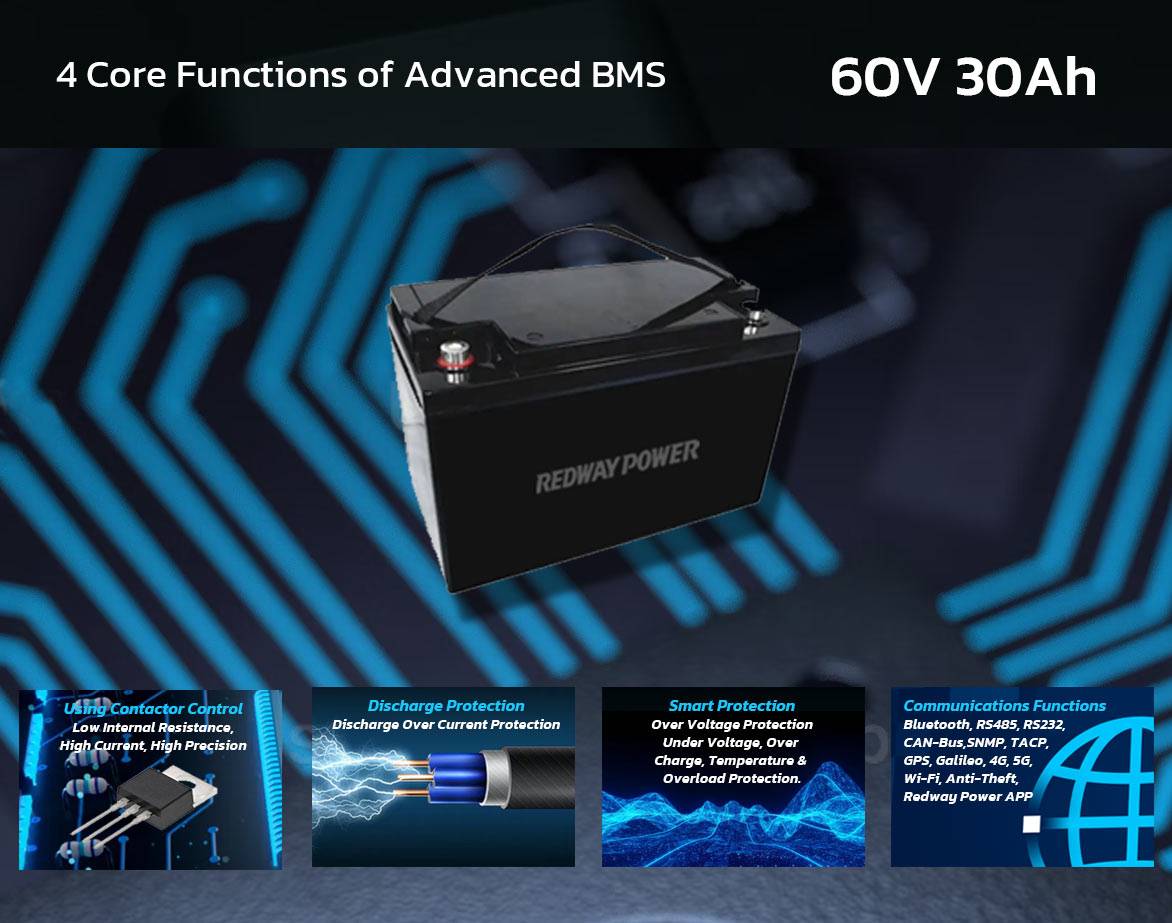
Specifications
Download 60V 30Ah Datasheet
Note: Our products are customizable, allowing customers to modify the main data according to their requirements.
| 60V30Ah | Specifications |
|---|---|
| Cell Type | LiFePO4 |
| Nominal Voltage | 60.8V |
| Nominal Capacity | 30Ah |
| Nominal Energy | 1824Wh |
| Charge Voltage | 69.3V |
| Discharge Voltage | 47.5V |
| Standard Charging Current | 10A |
| Max. Continues Charge Current | 30A |
| Max. Continues Discharge Current | 30A |
| Peak Discharge Current | 90A (5 Sec) |
| Charger | Fast Charger / CC / CV |
| Dimensions [L x W x H] | 330 x 172 x 237 mm 13 x 6.7 x 9.3 inch |
| Weight | 15 kg |
| IP Rating | IP66 (More request) |
| Cycle Life | >4000 cycles (DOD 80%) |
| Self-Discharge | 3% (Per month) |
| Charge Temperature | 0°C ~ 60°C 32°F ~ 140°F |
| Discharge Temperature | -20°C ~ 65°C -4°F ~ 149°F |
| Optional Functions | Bluetooth / WiFi / LCD / LED Touch Screen / RS485 / RS232 / CAN / 4G, 5G / GPS / APP |
| BMS | Intelligent BMS protection |
| Terminal | M6 / M8 |
| Battery Case | ABS |
| Design Life | 10 Years |
| Warranty | 3 Years |
| Silk-Screen / Label Printing | Yes |
| User Manual / Warranty Card | Yes |
| Customization / OEM / ODM | Yes |
| Shipment | Yes |
| Certifications | IEC, UN38.3, MSDS (More request) |
Applications and FAQs
60V 30Ah lithium iron phosphate (LiFePO4) batteries present a notable advancement over traditional deep cycle batteries, finding extensive utility in applications like home alarm systems, camping, and solar lighting. While standard sealed lead-acid (SLA) batteries typically offer around 500 cycles, these lithium batteries boast a remarkable lifespan of up to 4000 cycles, significantly reducing the cost per use.
The longevity of lithium-ion batteries coupled with their efficient energy storage makes them a preferred choice in the market. Their ability to provide reliable power over an extended period, along with their lightweight and compact design, makes them ideal for diverse applications, reflecting their prominence in today's market.
What is a 60V 30Ah lithium battery?
A 60V 30Ah lithium battery is a rechargeable battery pack that combines multiple lithium-ion cells to provide a voltage of 60V and a capacity of 30Ah. It is commonly used in applications like electric vehicles, electric bikes, and solar energy storage systems. This high-capacity battery offers reliable power and is known for its long cycle life and lightweight design.
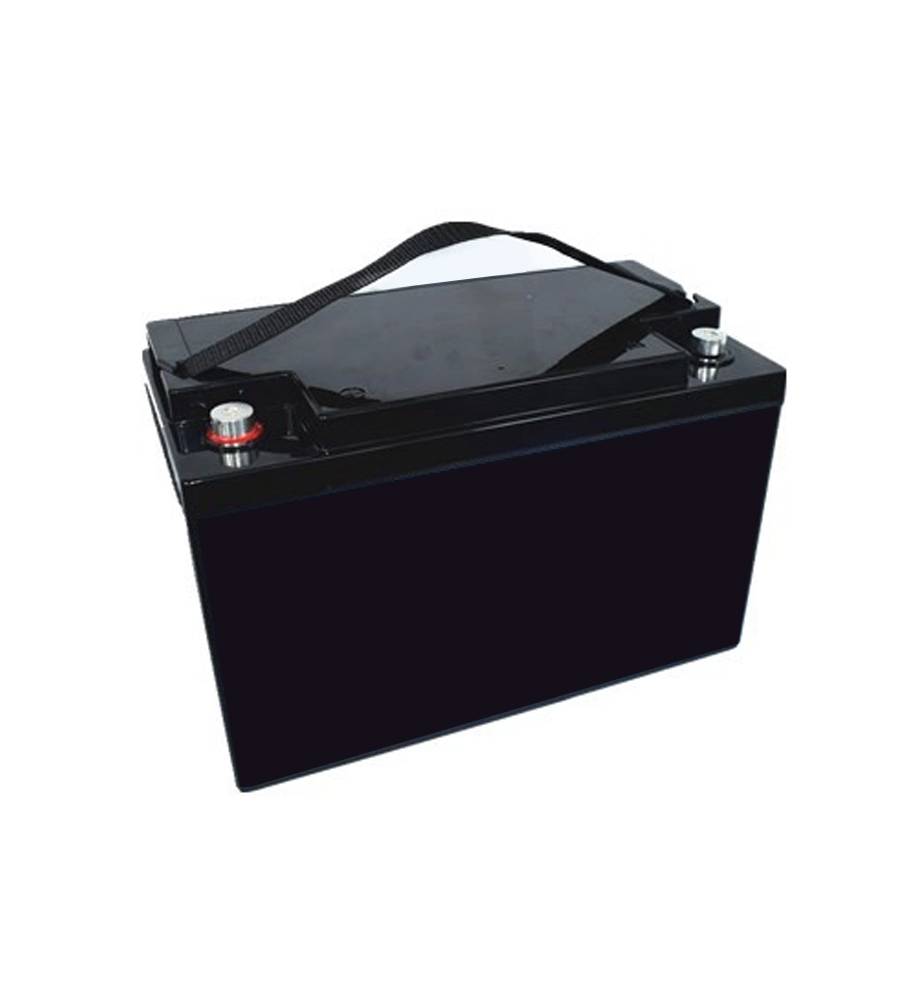
Where can you use a 60V 30Ah battery?
A 60V 30Ah battery is versatile and can be used in various applications that require a higher-energy density battery. It is commonly used in electric scooters, electric bikes, solar energy storage systems, robotics, and certain electric vehicles. This high-capacity battery provides reliable power and enables extended operation in these applications.
- Off-Grid Solar Power Systems: Essential for storing surplus solar energy for continuous power availability.
- Marine and RV Applications: Powers onboard electronics, enabling extended trips with its lightweight design.
- Industrial and Commercial Use: Provides reliable power for critical operations and backup systems.
- Backup Power Supplies: Ensures continuous operation during grid outages, safeguarding essential appliances.
- Renewable Energy Storage: Optimizes energy utilization in renewable energy applications, enhancing grid stability.
- Electric Vehicles: Enables extended driving ranges and faster charging times, enhancing performance compared to lead-acid batteries.
In summary, the 60V 30Ah battery offers unmatched versatility and reliability, catering to residential and commercial energy storage and power delivery needs.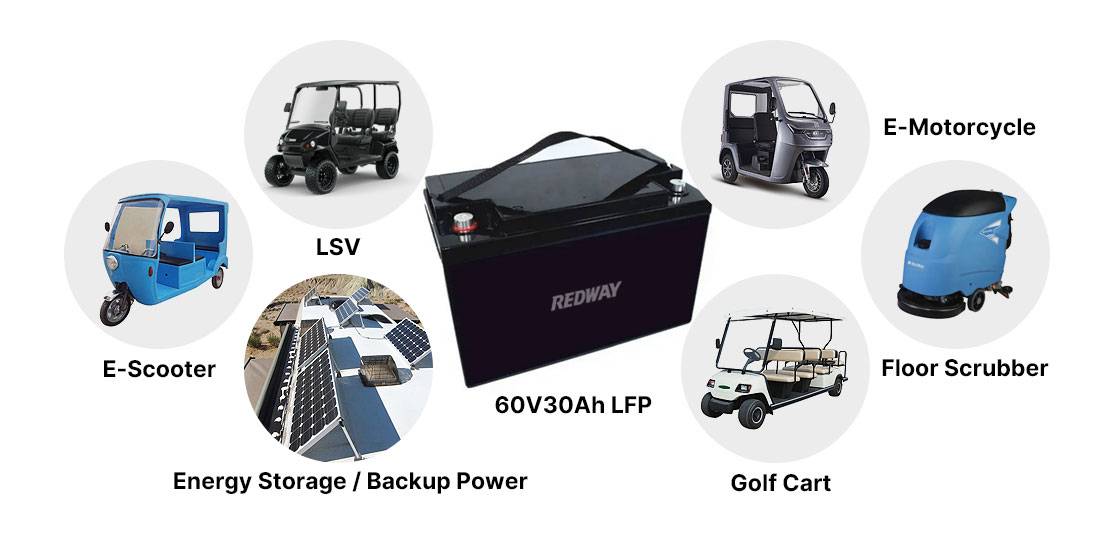
Explain the different advantages of a 60V 30Ah lithium-ion battery?
A 60V 30Ah lithium-ion battery offers several advantages, including higher voltage for efficient power delivery, higher energy density for compact size and lightweight design, longer cycle life for durability, faster charging capability, and maintenance-free operation. These advantages make it a preferred choice for various applications such as electric vehicles, solar energy storage systems, and robotics.
What are the disadvantages of a 60V 30Ah lithium battery?
While 60V 30Ah lithium batteries offer numerous advantages, they also come with some disadvantages:
- Higher Initial Cost: Lithium-ion batteries typically have a higher upfront cost compared to traditional lead-acid batteries. Although they offer long-term savings due to their longer lifespan and lower maintenance requirements, the initial investment may be a barrier for some users.
- Complexity of Recycling: Lithium-ion batteries are more complex to recycle compared to lead-acid batteries. Disposal and recycling processes require specialized equipment and techniques to handle the potentially hazardous materials, leading to higher recycling costs and environmental concerns.
- Temperature Sensitivity: Lithium-ion batteries can be sensitive to temperature extremes. High temperatures can accelerate degradation and reduce lifespan, while low temperatures can decrease performance and capacity. Proper thermal management is essential to mitigate these effects, adding complexity to system design and operation.
- Safety Concerns: Although rare, lithium-ion batteries have the potential for thermal runaway and fire hazards if damaged or improperly handled. Strict safety protocols must be followed during manufacturing, installation, and operation to minimize the risk of accidents.
- Limited Discharge Rate: Lithium-ion batteries may have limitations on their maximum discharge rate, which can affect their suitability for high-power applications such as electric vehicles or heavy machinery. Users must ensure that the battery's discharge capabilities meet the requirements of their specific application.
Despite these disadvantages, advancements in technology and ongoing research aim to address these challenges and improve the overall performance and safety of lithium-ion batteries.
How long will a 60V 30Ah battery last if fully charged?
The duration a fully charged 60V 30Ah battery will last depends on the average current drawn from it. Using a battery life calculator, you can estimate the battery life based on the nominal capacity and the average current consumption. For example, if the load requires 10A, the battery may last for approximately 3 hours, while at 5A, it may last for around 6 hours.
However, factors like temperature, age, and depth of discharge can influence actual runtime. It's essential to consider these variables when estimating battery life. Additionally, as the battery discharges, its voltage drops, affecting the available power. Therefore, the runtime may vary throughout the discharge cycle.
How is a deep cycle 60V 30Ah lithium battery better than a deep cycle lead-acid battery?
A deep cycle 60V 30Ah lithium battery offers several advantages over a deep cycle lead-acid battery. These include higher energy density, longer cycle life, faster charging capability, lightweight and compact design, and higher efficiency. These advantages make lithium batteries a preferred choice for applications that require reliable and long-lasting power output.
-
Higher Energy Density for Greater Power Output:
Lithium batteries have a higher energy density compared to lead-acid batteries. This means that a 60V 30Ah lithium battery can store more energy in a smaller and lighter package. As a result, it can deliver greater power output and longer-lasting performance, making it suitable for applications that require high energy demands. -
Longer Cycle Life for Extended Durability:
Lithium batteries generally have a longer cycle life compared to lead-acid batteries. They can withstand more charge-discharge cycles without significant capacity loss. This durability ensures reliable power over an extended period, reducing the need for frequent battery replacements and providing cost savings in the long run. -
Faster Charging Capability for Reduced Downtime:
Lithium batteries have a faster charging capability compared to lead-acid batteries. They can be charged at a higher rate, allowing for quicker turnaround between uses. This feature is particularly beneficial in applications where downtime needs to be minimized, enabling more efficient and continuous operation. -
Lightweight and Compact Design for Portability:
Lithium batteries are significantly lighter and more compact than lead-acid batteries with similar capacity. This makes them ideal for applications where weight and space are critical factors, such as portable devices and electric vehicles. The lightweight and compact design of lithium batteries enhance mobility and convenience. -
Higher Efficiency for Improved Performance:
Lithium batteries offer higher energy efficiency compared to lead-acid batteries. They deliver a more consistent and stable voltage throughout the discharge cycle, resulting in improved overall performance and utilization of stored energy. This efficiency translates into enhanced functionality and longer-lasting power output.
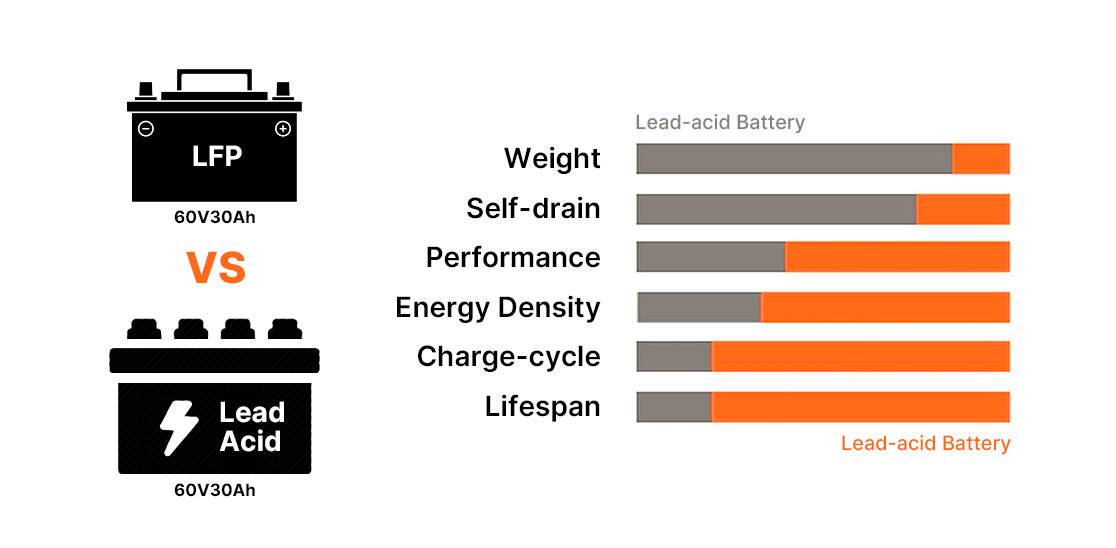
Overall, a deep cycle 60V 30Ah lithium battery offers superior performance, reliability, and convenience compared to a deep cycle lead-acid battery, making it the preferred choice for many applications.
What quality standards should a 60V 30Ah lithium battery fulfill during its manufacturing?
During the manufacturing of a 60V 30Ah lithium battery, it should fulfill quality standards such as compliance with IEC standards, passing UN DOT 38.3 testing, obtaining relevant certifications (e.g., BSMI, FCC, CE), and following a robust quality management program. These standards and regulations ensure the battery's reliability, safety, and adherence to international quality criteria.
-
International Electrotechnical Commission (IEC) Standards:
The IEC has established standards for lithium batteries, such as IEC 62281. These standards outline tests and requirements for battery safety and performance. Compliance with IEC standards ensures that the battery meets international quality and safety criteria, providing confidence in its reliability and functionality. -
United Nations (UN) DOT 38.3 Testing:
To ship lithium batteries internationally, they must undergo a series of tests outlined in UN DOT 38.3. These tests evaluate the battery's performance and safety under various conditions, including temperature, vibration, impact, and more. Meeting these testing requirements ensures that the battery can withstand real-world scenarios and maintain its integrity during transportation. -
Certifications:
Manufacturers may seek certifications from regulatory bodies such as BSMI, FCC, CE, or other relevant authorities. These certifications validate that the battery meets specific quality and safety standards set by those organizations. Having these certifications assures customers that the battery has undergone rigorous testing and meets industry-recognized quality benchmarks. -
Quality Management Program:
A robust quality management program is essential during the manufacturing process of lithium batteries. This program includes comprehensive testing, inspection, and quality control measures to ensure consistent quality and performance. Adhering to a quality management program helps identify and address any potential issues early on, resulting in a reliable and high-quality battery.
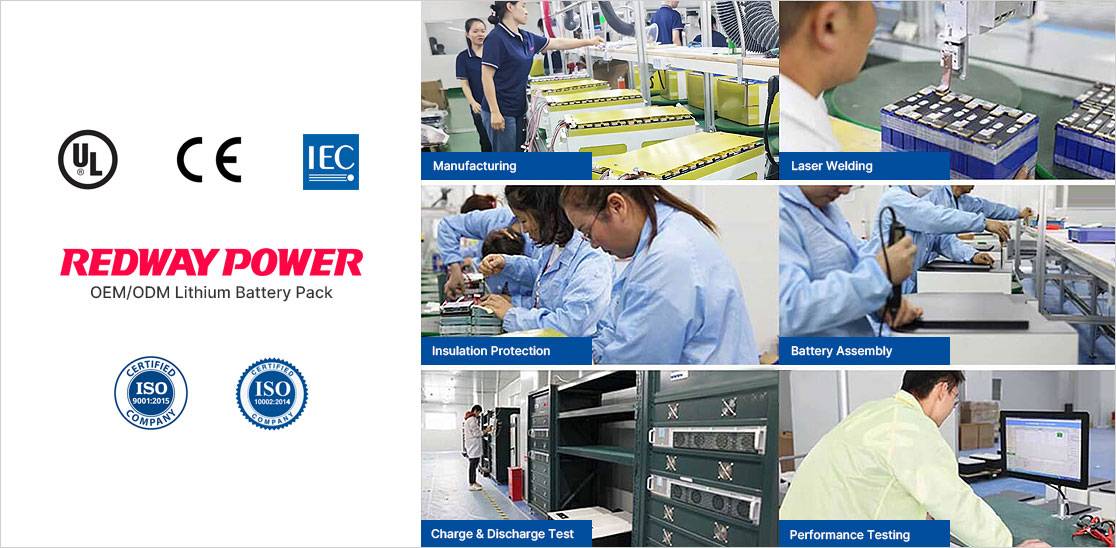
Is it safer to use a 60V 30Ah lithium-ion battery in small size vehicles?
Yes, it is safer to use a 60V 30Ah lithium-ion battery in small size vehicles. Lithium-ion batteries offer safety advantages due to their high energy density, lightweight design, and longer cycle life. These batteries provide reliable power and reduce the risk of battery failure or malfunction, ensuring a safer and more efficient operation of small size vehicles.
-
High Energy Density for Reliable Power:
Lithium-ion batteries are known for their high energy density, which means they can store a significant amount of energy in a compact size. This allows small size vehicles to have a reliable and consistent power source, ensuring smooth operation and reducing the risk of power interruptions. -
Lightweight Design for Enhanced Safety:
Compared to other battery types, lithium-ion batteries have a lightweight design. This reduces the overall weight of the vehicle, improving its maneuverability and stability. Additionally, a lighter battery contributes to better fuel efficiency and reduces the strain on other vehicle components. -
Longer Cycle Life for Extended Performance:
Lithium-ion batteries have a longer cycle life compared to other battery types. This means they can withstand more charge-discharge cycles without significant capacity loss. The extended performance and durability of lithium-ion batteries ensure a longer lifespan for small size vehicles, reducing the need for frequent battery replacements.
What are the features of a 60V 30Ah lithium-ion battery?
A 60V 30Ah lithium-ion battery offers features such as high energy density, lightweight design, long cycle life, fast charging capability, high power output, and low self-discharge rate. These features make it suitable for various applications, providing reliable and long-lasting power in a compact and efficient package.
-
High Energy Density for Extended Power:
The 60V 30Ah lithium-ion battery boasts a high energy density, allowing it to store a significant amount of energy in a compact size. This feature ensures a long-lasting power supply, making it suitable for applications that require sustained power output. -
Lightweight Design for Enhanced Mobility:
Compared to other battery types, the lithium-ion battery is known for its lightweight design. This characteristic makes it an excellent choice for applications where weight plays a crucial role, such as portable devices and electric vehicles. The lightweight design improves overall mobility and efficiency. -
Long Cycle Life for Durability:
The 60V 30Ah lithium-ion battery offers a long cycle life, meaning it can withstand a higher number of charge-discharge cycles without significant capacity loss. This feature ensures the battery's durability and longevity, reducing the need for frequent replacements and providing cost savings. -
Fast Charging Capability for Reduced Downtime:
Lithium-ion batteries have a fast charging capability, allowing for quick recharging and reduced downtime. This feature is particularly beneficial in applications where time is of the essence, ensuring continuous operation and improved productivity. -
High Power Output for Demanding Applications:
The 60V 30Ah lithium-ion battery delivers high power output, making it suitable for applications with high power demands or requiring a burst of energy. This feature enables the battery to meet the requirements of power-hungry devices or equipment, ensuring optimal performance. -
Low Self-Discharge Rate for Extended Shelf Life:
The lithium-ion battery has a low self-discharge rate, meaning it retains its charge for longer periods when not in use. This feature ensures that the battery remains ready for use even after extended periods of storage, providing convenience and reliability.
What are the specifications of a 60V 30Ah lithium-ion battery?
The specifications of a 60V 30Ah lithium-ion battery typically include a nominal voltage of 60 volts, a capacity of 30 ampere-hours, and a weight ranging from 10 to 25 pounds. The dimensions can vary, but common lengths range from 200 to 400 millimeters, widths from 100 to 200 millimeters, and heights from 100 to 300 millimeters. It is important to refer to the specific product datasheet or consult with the manufacturer for precise specifications.
-
Voltage: The nominal voltage of a 60V 30Ah lithium-ion battery is 60 volts. This indicates the electrical potential difference between its positive and negative terminals, providing the required voltage for compatible devices or systems.
-
Capacity: The capacity of a 60V 30Ah lithium-ion battery is 30 ampere-hours (Ah). This specification represents the amount of charge the battery can deliver over a specific period. Higher capacity batteries can provide longer operating times before requiring recharging.
-
Chemistry: The lithium-ion battery chemistry used in a 60V 30Ah battery can vary. Common chemistries include lithium iron phosphate (LiFePO4), lithium nickel manganese cobalt oxide (NMC), or a combination of different materials. The choice of chemistry affects the battery's performance, energy density, and safety characteristics.
-
Weight: The weight of a 60V 30Ah lithium-ion battery typically ranges from 10 to 25 pounds (4.5 to 11 kilograms). The weight depends on factors such as the battery's construction, materials used, and the specific application it is designed for. Lighter batteries are preferred for portable devices or applications where weight is a critical factor.
-
Dimensions: The physical dimensions of a 60V 30Ah lithium-ion battery can vary. They are designed to fit specific applications and may vary in length, width, and height. Common dimensions include lengths ranging from 200 to 400 millimeters, widths ranging from 100 to 200 millimeters, and heights ranging from 100 to 300 millimeters.
How to maintain a 60V 30Ah lithium-ion battery?
To maintain a 60V 30Ah lithium-ion battery, it is important to avoid exposing it to temperatures above 60°C (140°F), handle it with care to prevent excessive shock or vibration, use the correct charger designed for lithium-ion batteries, store it in a cool and dry place with a charge level between 30% and 50% when not in use, and follow any specific maintenance guidelines provided by the manufacturer.
-
Temperature Control:
One crucial aspect of maintaining a lithium-ion battery is to avoid subjecting it to extreme temperatures. High temperatures, above 60°C (140°F), can degrade the battery's performance and shorten its lifespan. Therefore, it is vital to store and operate the battery within the recommended temperature range. -
Gentle Handling:
Handle the battery with care, avoiding excessive shock or vibration. Rough handling can damage the internal components of the battery, leading to reduced performance and potential safety risks. Treat the battery as a delicate and valuable component of your device or system. -
Proper Charging:
Using the correct charger specifically designed for lithium-ion batteries is crucial for maintaining the health of your 60V 30Ah battery. Avoid using incompatible chargers, as they can lead to overcharging or undercharging, which can impact the battery's capacity and overall health. Follow the manufacturer's instructions regarding charging procedures and recommended charging rates. -
Smart Storage Practices:
If you need to store the battery for an extended period, ensure that it is stored in a cool and dry place. Ideally, the battery should be stored with a charge level between 30% and 50%. Avoid storing the battery in fully discharged or fully charged states, as this can lead to capacity loss and potential damage. Regularly check the battery's charge level during storage and recharge if necessary. -
Regular Use:
To maintain the health of your 60V 30Ah lithium-ion battery, it is beneficial to use it regularly. Regular use helps prevent the battery from remaining idle for extended periods, which can lead to capacity degradation. Even if you do not need to use the battery continuously, consider periodic charging cycles to keep it active and healthy. -
Follow Manufacturer Guidelines:
Always refer to the specific maintenance guidelines provided by the battery manufacturer. They may have additional recommendations or instructions tailored to the 60V 30Ah lithium-ion battery. Following these guidelines ensures that you are taking the necessary steps to maintain your battery properly.
By following these maintenance practices, you can ensure the longevity and optimal performance of your 60V 30Ah lithium-ion battery, providing reliable power for your devices or systems. Remember, proper maintenance is key to maximizing the lifespan and efficiency of your battery.
What intelligent features are in Aegis 60V 30Ah Battery's BMS?
The Aegis 60V 30Ah Battery's BMS (Battery Management System) is equipped with intelligent features such as over-charge protection, over-discharge protection, over-current protection, and short-circuit protection. These features enhance the battery's performance, prevent damage to the cells, and ensure its safe operation.
-
Over-charge Protection:
The BMS of the Aegis battery is designed to prevent overcharging. Overcharging can lead to excessive voltage levels, which can damage the battery cells and reduce their lifespan. By actively monitoring the charging process, the BMS ensures that the battery is charged within safe limits, protecting it from potential harm. -
Over-discharge Protection:
Similarly, the BMS includes over-discharge protection to prevent the battery from being discharged beyond safe levels. Excessive discharge can cause irreversible damage to the battery cells and impact their performance. The BMS monitors the battery's voltage and automatically cuts off the discharge when it reaches a critical threshold, preserving the battery's health. -
Over-current Protection:
The BMS of the Aegis battery incorporates over-current protection to safeguard against high currents that can be detrimental to the battery's operation. It continuously monitors the current flow and intervenes if it detects a current surge beyond the battery's specified limits. This feature prevents excessive stress on the battery cells and helps maintain their integrity. -
Short-circuit Protection:
In the event of a short circuit, the BMS acts swiftly to protect the battery and prevent any potential damage. It detects the abnormal current flow caused by the short circuit and immediately interrupts the circuit, isolating the battery from the fault. This feature ensures the safety of the battery and minimizes the risk of damage.
What are the AC-to-DC charger specifications for Aegis 60V 30Ah Battery?
The AC-to-DC charger specifications for the Aegis 60V 30Ah Battery are not explicitly mentioned. However, the battery is compatible with chargers that have an input voltage of AC110V-240V and operate at a frequency of 50/60HZ. These specifications allow the charger to be used with various power supply voltages and frequencies.
-
Input Voltage Range:
The charger for the Aegis 60V 30Ah Battery is designed to accept a wide range of input voltages. The input voltage range typically covers AC110V to AC240V. This means that the charger can be used with different power supply voltages within this range, providing flexibility and compatibility with various electrical systems. -
Frequency Compatibility:
In addition to the input voltage range, the charger is also compatible with different frequencies. The standard frequency range for the charger is 50/60Hz. This ensures that the charger can operate effectively in regions where the power supply frequency may vary between 50Hz and 60Hz.
While specific details about the charger's specifications are not readily available, the AC-to-DC charger for the Aegis 60V 30Ah Battery is designed to accommodate a wide range of input voltages and frequencies. This versatility allows users to charge the battery using different power supply configurations, making it suitable for various charging environments.
How can customers contact Aegis Battery for inquiries or orders?
If you're interested in learning more about Aegis Battery's products or services, contacting them is easy. You can reach out to their team through various channels such as phone, email, or the contact form on their website. Whether you have inquiries about their 60V 30Ah Lithium Battery or need assistance with placing an order, their friendly staff will be happy to help.
For a quick response, consider giving them a call during business hours. If you prefer written communication, sending an email detailing your questions or requirements is also a great option. Additionally, filling out the contact form on their website allows you to provide specific details that can help streamline the process.
Don't hesitate to get in touch with Aegis Battery if you have any questions or if you're ready to make a purchase. Their customer service team is dedicated to providing prompt and informative responses to ensure your needs are met efficiently and effectively.
What products and services does Aegis Battery offer?
Aegis Battery provides a wide range of products and services to meet your energy needs. Their lineup includes high-quality lithium batteries, such as the 60V 30Ah Li-ion Battery, known for its reliable performance and long lifespan.
In addition to batteries, Aegis offers advanced Battery Management Systems (BMS) with intelligent features designed to optimize battery usage and enhance safety. These BMS technologies ensure efficient power management and protection against overcharging or discharging.
Customers can also benefit from Aegis' AC-to-DC chargers that are specifically tailored for their lithium batteries, ensuring fast and convenient charging solutions. With these chargers, you can easily recharge your batteries at home or on-the-go.
Aegis Battery's commitment to quality extends beyond just products; they also provide exceptional customer service. Whether you have inquiries about their products or want to place an order, their dedicated team is available to assist you every step of the way.
What types of batteries does Aegis Battery offer?
Aegis Battery offers a wide range of high-quality lithium batteries to meet various energy storage needs. From 12V to 72V, their products include lithium-ion batteries, LiFePO4 batteries, and custom battery solutions tailored to specific requirements. Whether you are looking for a reliable power source for your electric vehicle, solar energy system, or any other application, Aegis Battery has the expertise and technology to provide you with top-notch battery solutions. Contact them today to learn more about their products and services!














